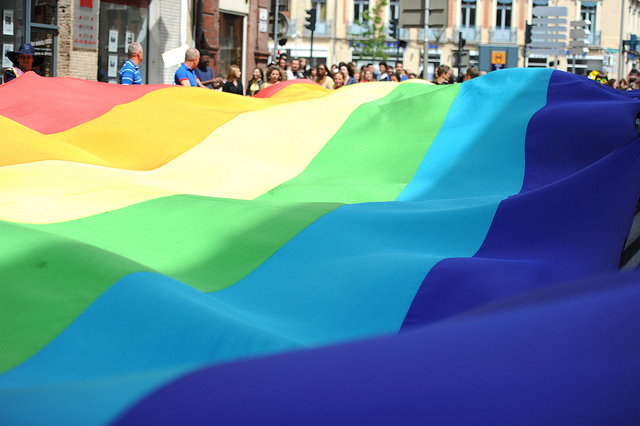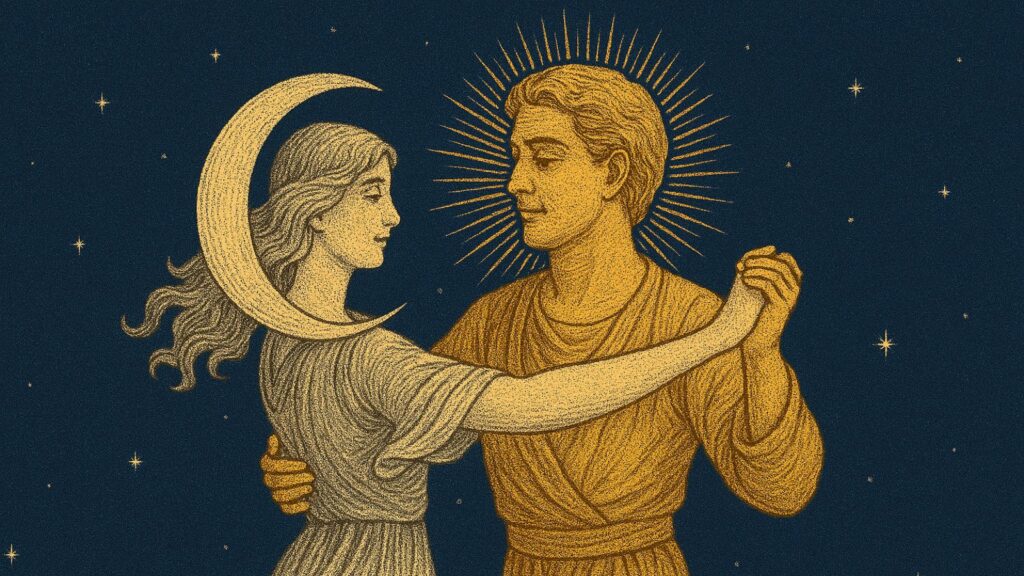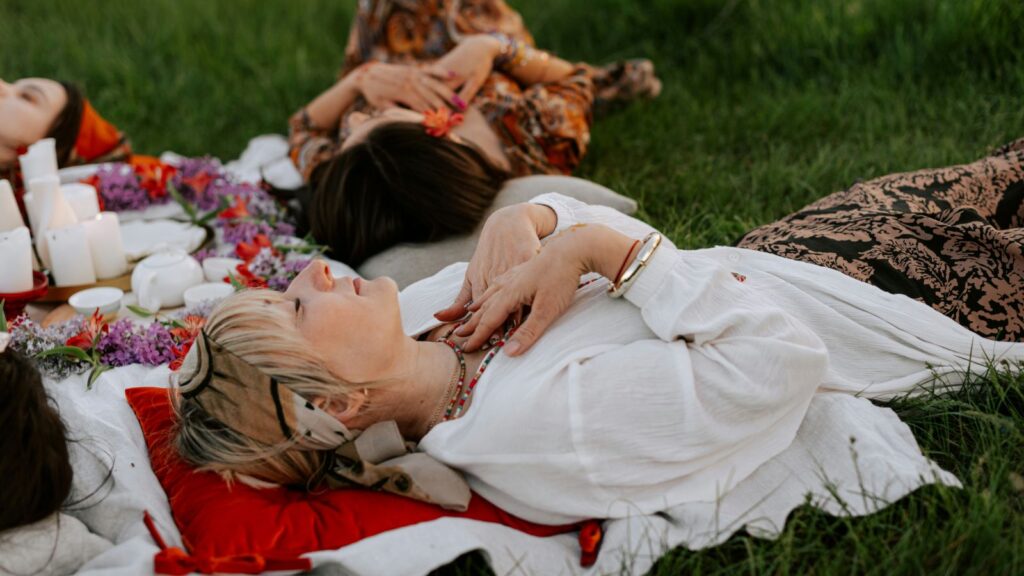Conner Habib’s series The Sex Radicals will be appearing regularly this summer on Reality Sandwich.
“Wherever you have a secret, that is where you are vulnerable.” –Amber Hollibaugh (1946-present)
A story about shame.
My first two years of college were spent in a Western Pennsylvania town, huddled in the woods. “It’s near Pittsburgh,” I’d say, though the truth was, it wasn’t near anything; Pittsburgh was an hour and a half drive away. My sexuality had dawned on me just a few years before I got there, when I realized that I was attracted to men. This was before the internet was cast, tangling everyone up, and there weren’t many options for us to find each other. No apps, not much access to communicate with people like me, and the nearest gay bar was inaccessible, I was too young.
In Keith Hall on campus, there was a space for exception; a bathroom where men, students and townies and staff, would meet for sex. Our straight peers were engaging with sex openly; they were able to meet at bars, concerts, and through wanton looks across the green campus center. Keith Hall was our only space. Men would go into the stall together, or jerk off at the urinals. When the door to the bathroom opened, everyone would stop; the secret world would rearrange itself and look like the one we were supposed to be living in. Who knows how these gathering places — and they exist everywhere, in mall bathrooms, at rest areas, in locker room saunas — take hold? No one plans them; they show up out of the sheer force of need and will.
The gay and lesbian student group, which met once every few weeks, was like a negative image of Keith Hall. It was sterile and still. We sat on the thin industrial carpet of a dull room. We were in a circle, talking to each other about gays in the military and marriage. Keith Hall wasn’t an official topic at any meeting, but it was a constant source of anxiety and cause for ridicule. Members would gossip about other members who they’d seen skulking around the bathroom for a blowjob, or about townie “trolls” who would linger on campus for sex. Of course, I’d seen each and every one of the male members of the student group in Keith Hall at one point or another, and they no doubt had seen me. No reason for why we shouldn’t meet there; to have sex was given. It was supposed to be self-evident. I was silent.
That is where shame comes from: it’s an agreement to silently betray yourself.
Where were we supposed to go? In spite of the commonly held image of gay promiscuity, there wasn’t (and isn’t) easy access to sex for gay men for much of their lives. In cities, sure, but not in the woods, not in the vast middle of the country, only at the edges. Being a sexual minority, a still demonized sexual minority, a demonized sexual minority in a culture that demonizes sex itself, cuts off access.
If you need sex and don’t have access to it, too bad, we’re told. Our culture, and by extension the on-campus gay and lesbian group, shamed everyone who was defying that by having sex in a “non-sexual” space. Suck it up. Suffer. If you do find it somewhere (anywhere), feel bad about it. Don’t admit it. Make others feel bad about it.
There was no way out of the trap.
Then I discovered Amber Hollibaugh. She spoke at my school and I consumed her writing and perspective.
She was a sex worker who grew up so poor that as a child, she slept in a dresser drawer. Now she was a published author, a labor rights activist, a lecturer. In her talk, she shared stories about waiting for her clients to fall asleep, and then looking through and committing to memory the titles and passages from the books on their shelves. Her intellectualism and sexuality and labor politics were all tied together. She is one of the most complete human beings I have ever encountered.
Whereas the gay and lesbian group I was part of was invested in notions of equality in terms of identity and discrimination, it couldn’t quite bring itself to talk about sex. It severed, as the contemporary “gay rights” and “equality” movements continue to sever, sex and pleasure from identity.
“I come from a moment in time and a radical vision,” Hollibaugh said, “that never made marriage or the military my criteria of success. I didn’t want us to have wars, I didn’t want us to have armies, and I didn’t want to register my relationship with the state.” In other words, the queer movement that Hollibaugh came from was not concerned with equality by emulating the dominant state-supported culture. Instead, it was concerned with the liberation of desire and pleasure (her life-changing book of essays is aptly titled My Dangerous Desires), and in seeing the powerful radiating potential of that liberation.
“I don’t want a day,” she said, in reference to gay pride. “I want a revolution.” At her lecture, in my heart, one had begun to occur.
She said, echoing Fourier, that access to consensual pleasure was a right, not a luxury. In the most electrifying moment, she said, “Wherever you have a secret, that is where you are vulnerable.”
If you try to keep a secret, then someone exposing that secret could damage you. And you live in a state of fear and anxiety, and powerlessness. In other words, a state of shame. It’s not the content of the secret so much, but the hiding of it that is so damaging.
I was holding on to so many secrets. Every time I had sex, every time I found a place among the silence of where I lived to experience pleasure, I hid it away. I didn’t tell anyone. I was terrified of being exposed and ridiculed. So I shamed myself. I knew that almost everyone I had seen in the Keith Hall bathroom must feel the same way.
My interest in Hollibaugh led me to the radical queer underground which traced its roots back to, among others, Edward Carpenter.
Edward Carpenter (1844-1929) was a handsome man with pointed features, a student and lover of Walt Whitman’s, a poet and a philosopher. Carpenter was a profoundly influential thinker in his time, but is largely unknown today. His erasure is a familiar one: we blot out from history the people who help us understand sex. Carpenter knew that sex was tied to power and tied to the sacred. More importantly, he knew that how we greeted sex with our thinking and emotions was of more importance than the kind of sex we had, specifically, since sex was part of nature (and nature was part of divine creation).
Religious thinkers and philosophers of his day (and ours) were popularizing the notion of shame as a guiding force: If you feel shame, it’s indicating that the action you’re taking is wrong. For Carpenter and the movements that traced their way back to him, shame was a shadow. It can’t actually guide you anywhere, it’s tacked to your heel, it’s the place the light hasn’t yet reached. To undo sexual shame, Carpenter advised, understand it’s not indicating a course of action. Understand also that it’s not bonded to the sex act so much as the frantic cultural impulses surrounding the sex act. It’s usually a feeling misdirected from somewhere else. Letting going of shame allows space for sex and pleasure themselves to guide you to your perspective on sex and pleasure. When you do that, sex has a different feel.
“The dissatisfaction which at times follows (sex),” Carpenter wrote, “is the same as follows on all pleasure which is sought, and which does not come unsought. The dissatisfaction is not in the nature of pleasure itself but in the nature of seeking.”
This good to keep in mind when you or someone you know says, “hook-ups feel shallow,” or “I want more than just sex.” If you’re seeking something in a casual sexual encounter, you may find yourself still seeking after it’s done. If, instead, you are open to seeing what the encounter can teach you, or even if you’re just willing to not dismiss the dissatisfaction as a negative feeling, something profound can happen each and every time. The experience of sex is never in and of itself shallow, a person’s perspective on their sexual experience, however, is a different matter.
My transformation was quick. I stopped being silently ashamed about my experiences, and I started talking about them.
When I transferred to the University of Massachusetts, there was a Keith Hall equivalent, the Student Union Building. There’s one on every campus. Different school, same stigma. Amherst was much more open to gay and lesbian sexuality than small-town Pennsylvania, but mostly because of the large lesbian population in the surrounding area. There still weren’t many gay men, and there was a still tense hush amongst gay students about the cruising spots, including a rest area on the nearby highway and a bike path at night. I’d stop at the Student Union bathroom often, between classes, looking for sex.
And I started telling my friends, gay and straight, about it.
The straight men expressed an astonished envy: “You can just get laid between classes?” A butch lesbian friend exclaimed, “You’d be stupid if you didn’t go there!” The gay men, though, were still sheepish. But their sheepishness didn’t add any shame on my account, and because I was open about it, no one shamed the practice around me. Reorganizing my thoughts about privacy and secrecy freed me.
My sex, any aspect of it, is private. Privacy means I can have whatever thoughts and feelings I want about it, and I can explore those on my own.
But my sex life was no longer secret: I wasn’t trying to hide it, and the value of it didn’t come from it being concealed.
I began to understand my own shame as a vestigial organ, something that developed in me but that wasn’t needed anymore. So many different parts of my life were touched by this preexisting shame: shame in discovering I was attracted to men, shame around expressing sexual feelings, shame that I wasn’t pursuing the societally approved intimacy-within-a-monogamous-relationship. It was impossible to avoid the shame by simply stopping one or another sexual behavior, it would show up somewhere else. I’d have to deal with my inner world directly.
Wherever you have a secret, that is where you are vulnerable. I learned instead, to move toward the vulnerability, instead of retreating from it. By becoming vulnerable intentionally, through the effort of honesty and openness, we become strong.
Next Up: Lust Is the Teacher: Vladimir Solovyov’s Sexual Love
Sources
Hollibaugh, Amber. My Dangerous Desires: A Queer Girl Dreaming Her Way Home. Durham: Duke University Press, 2000.
Hollibaugh, Amber L. The LGBTQ Movement’s Radical Vision (web). https://www.youtube.com/watch?v=fqNrCMG4tjI
Rowbotham, Sheila. Edward Carpenter: A Life of Liberty and Love. Brooklyn: Verso, 2009.
Image by Guillaume Paumier, courtesy of Creative Commons license.













